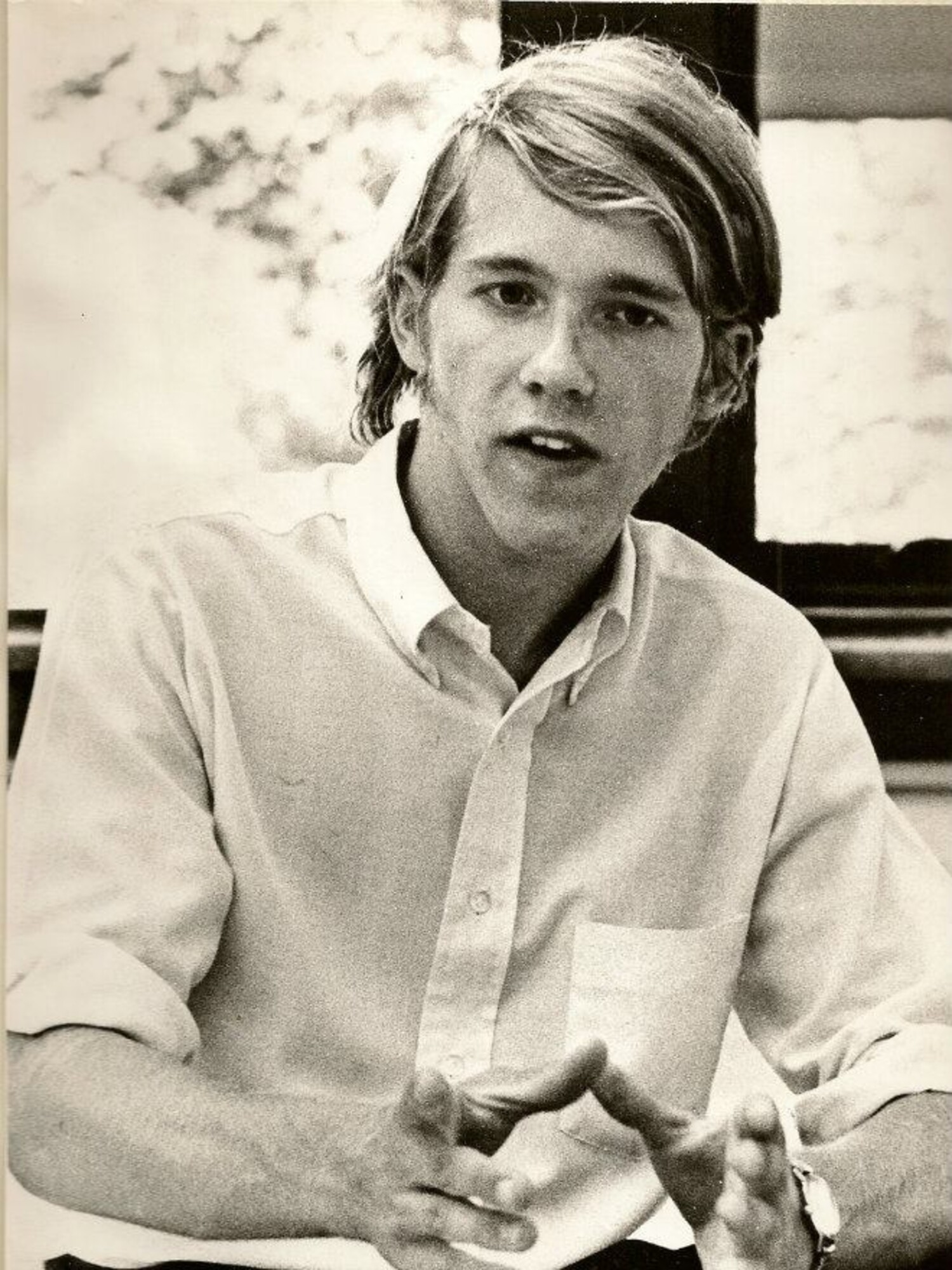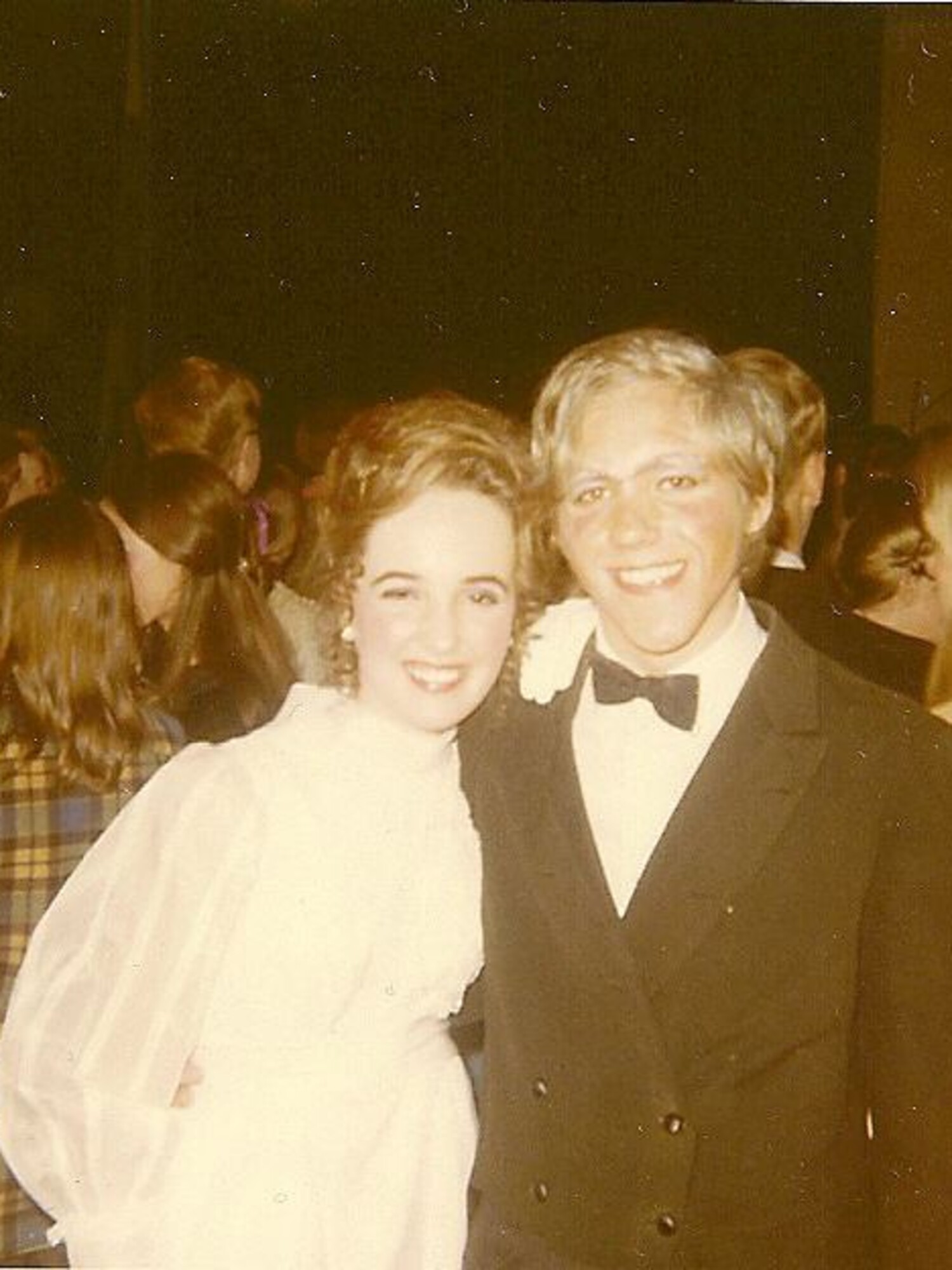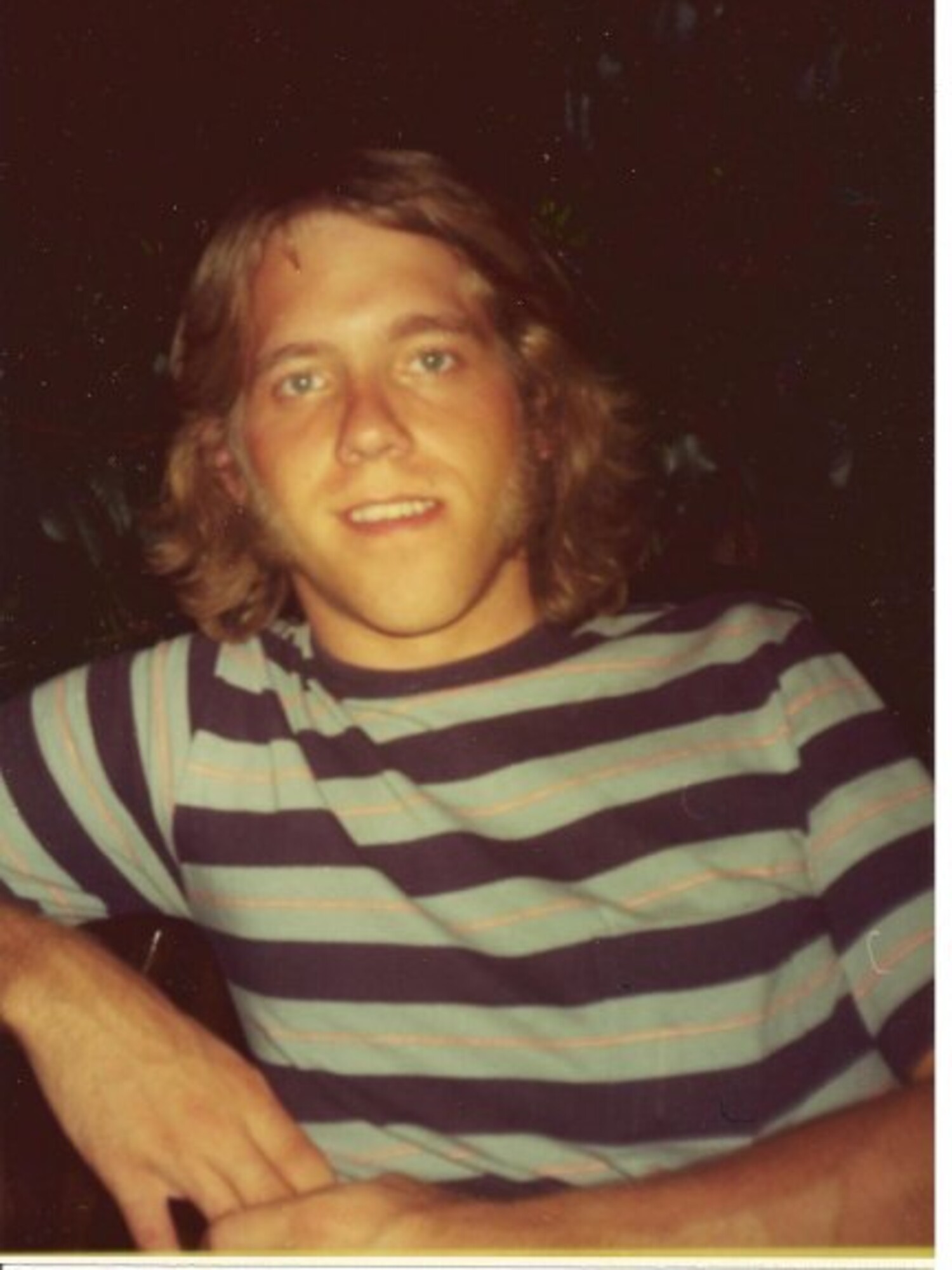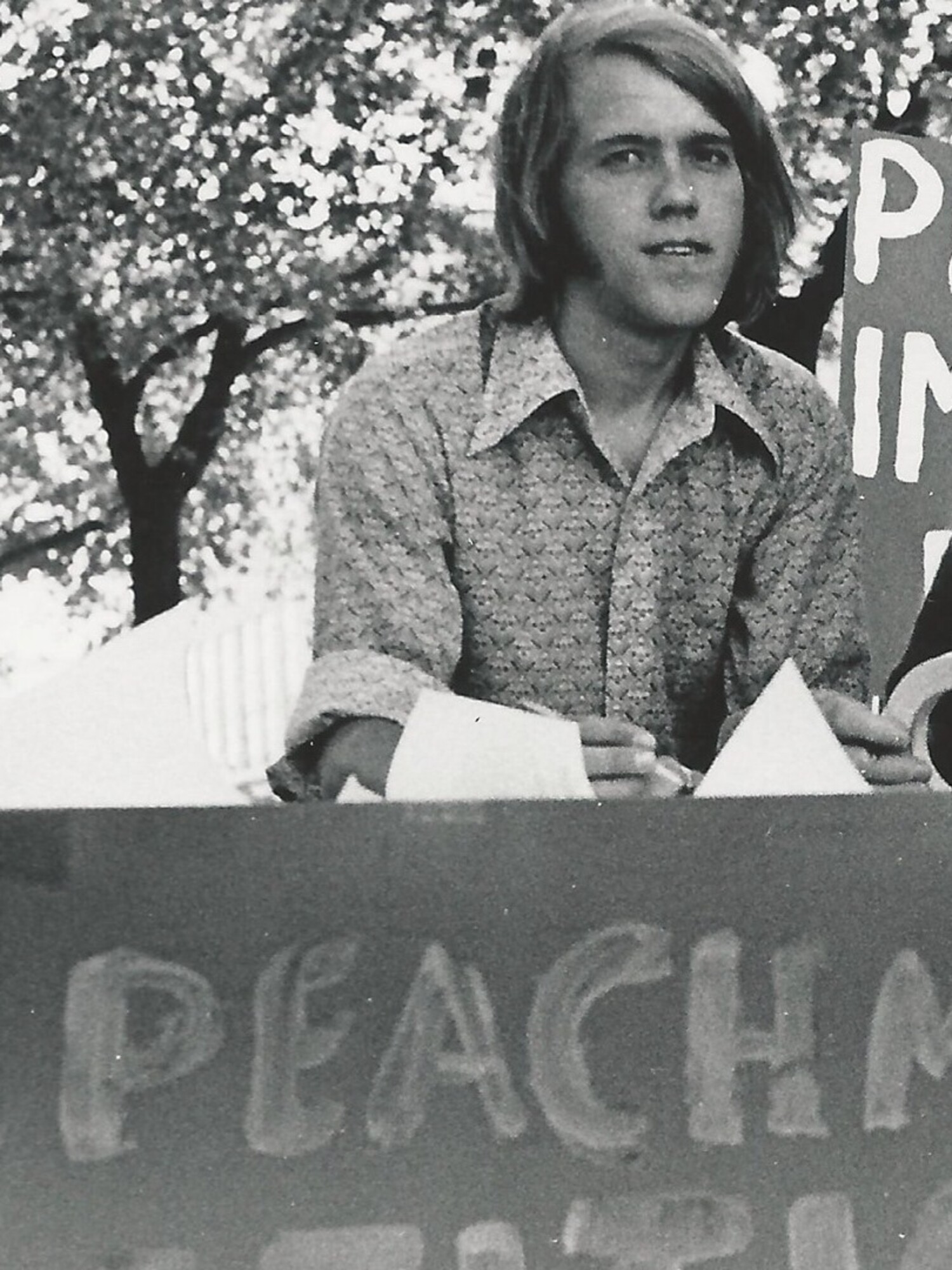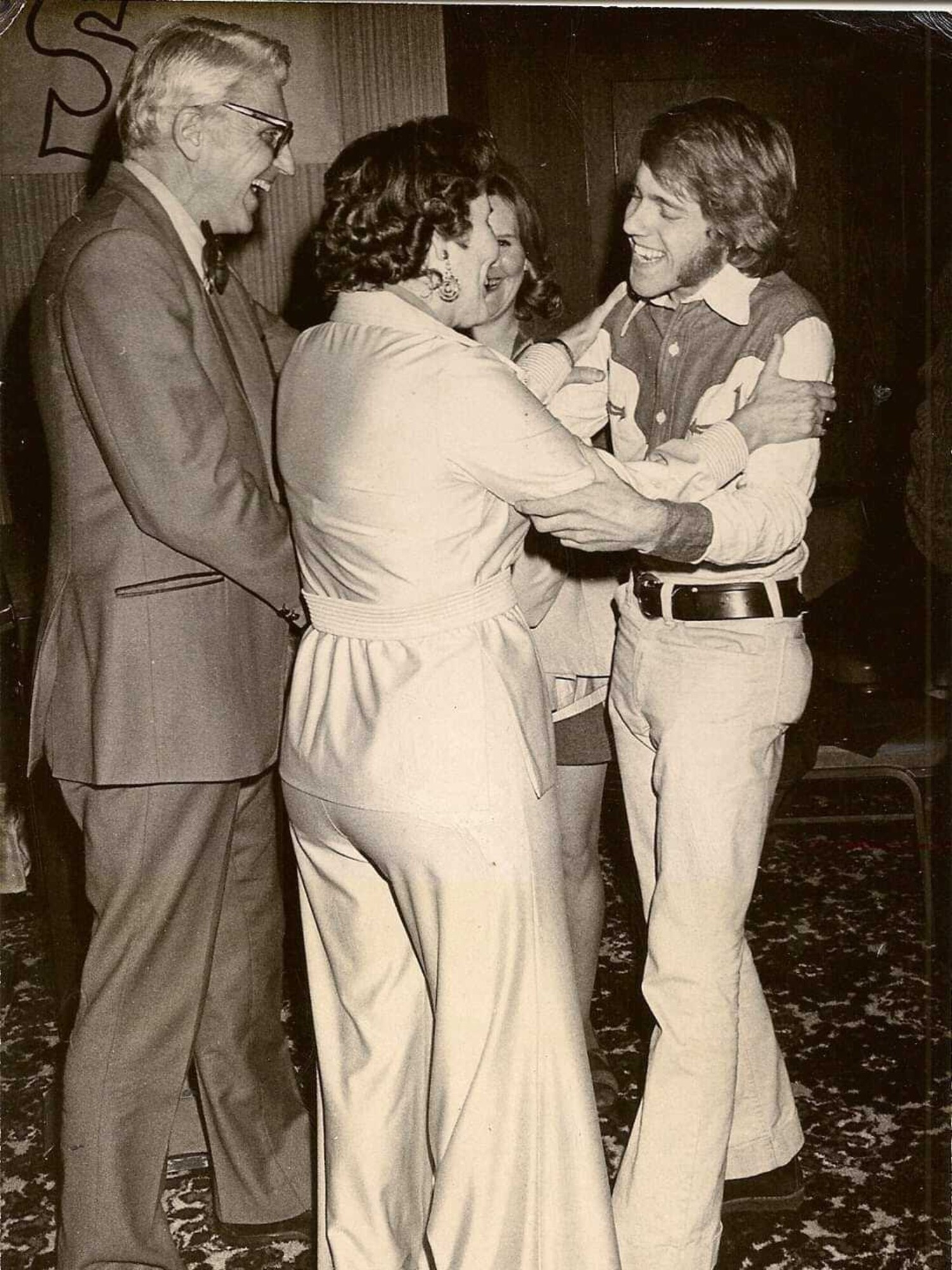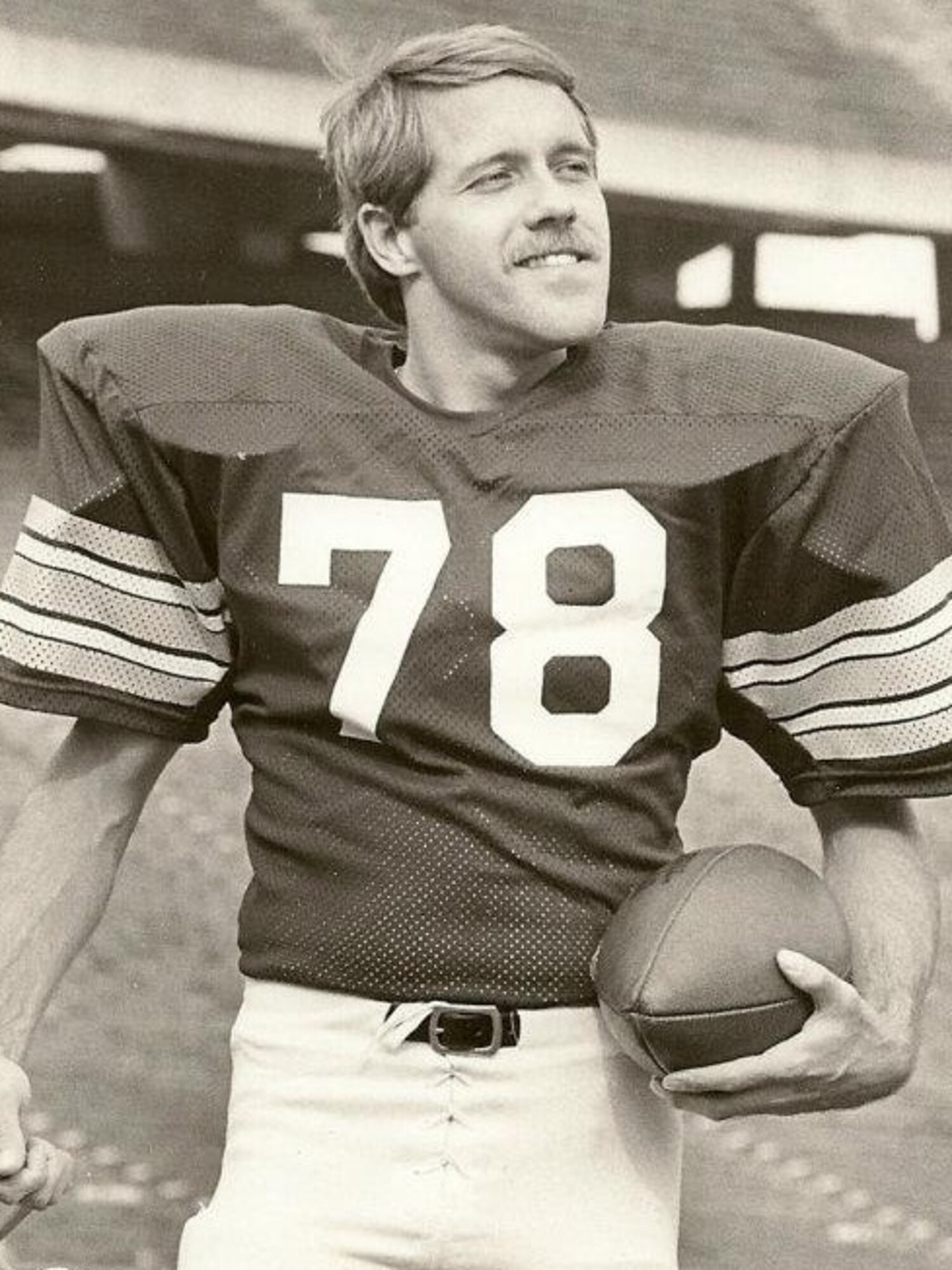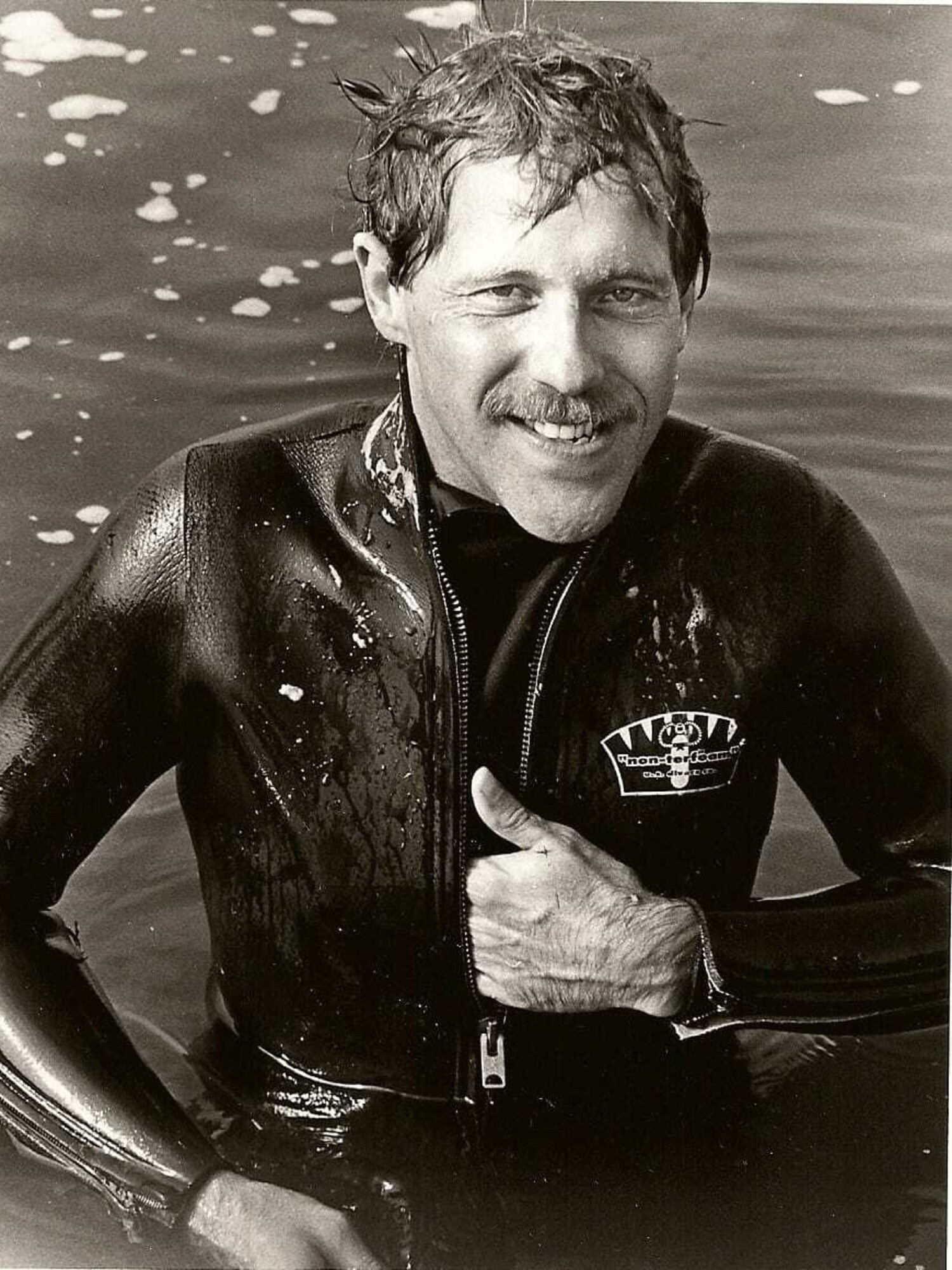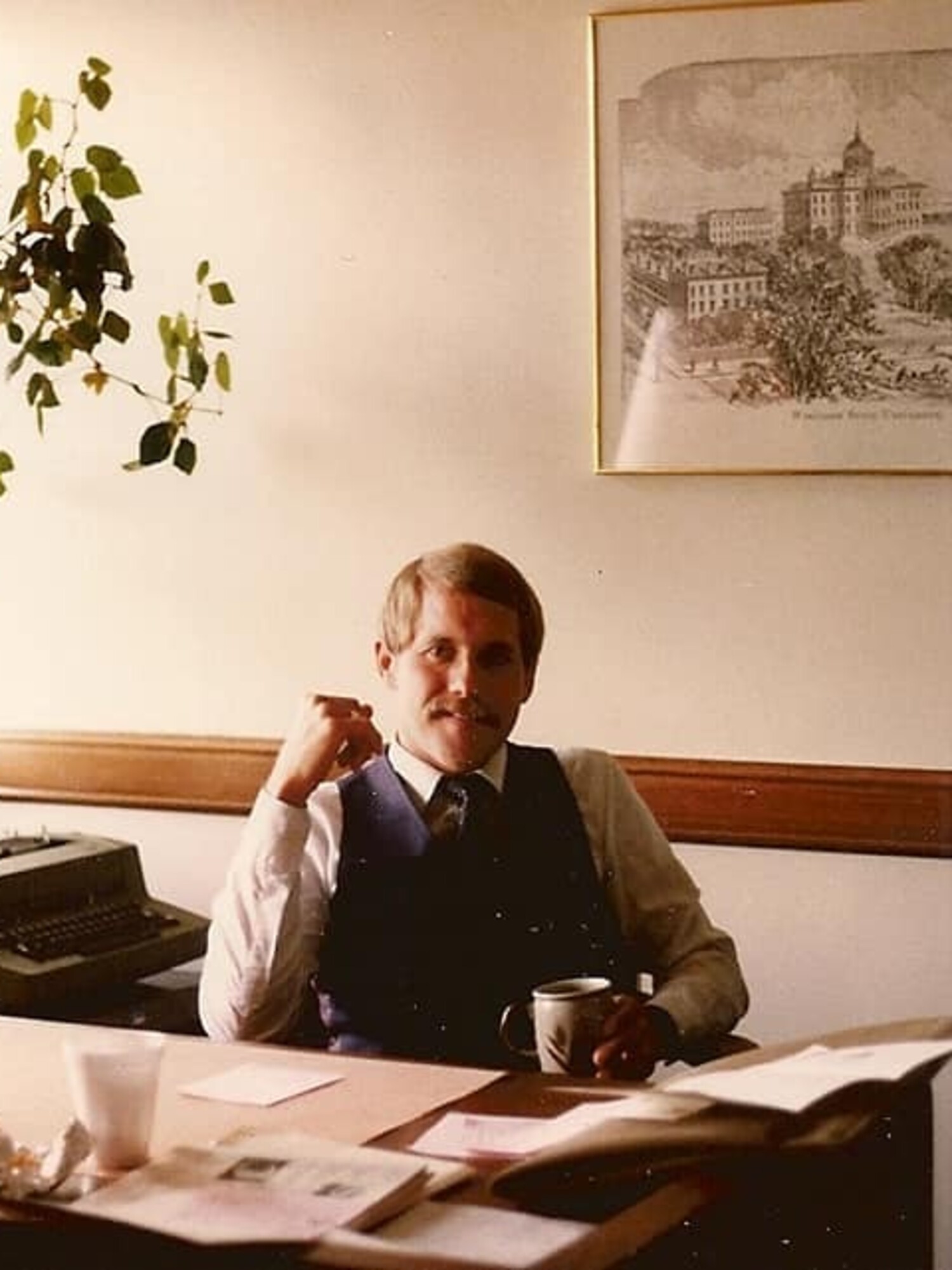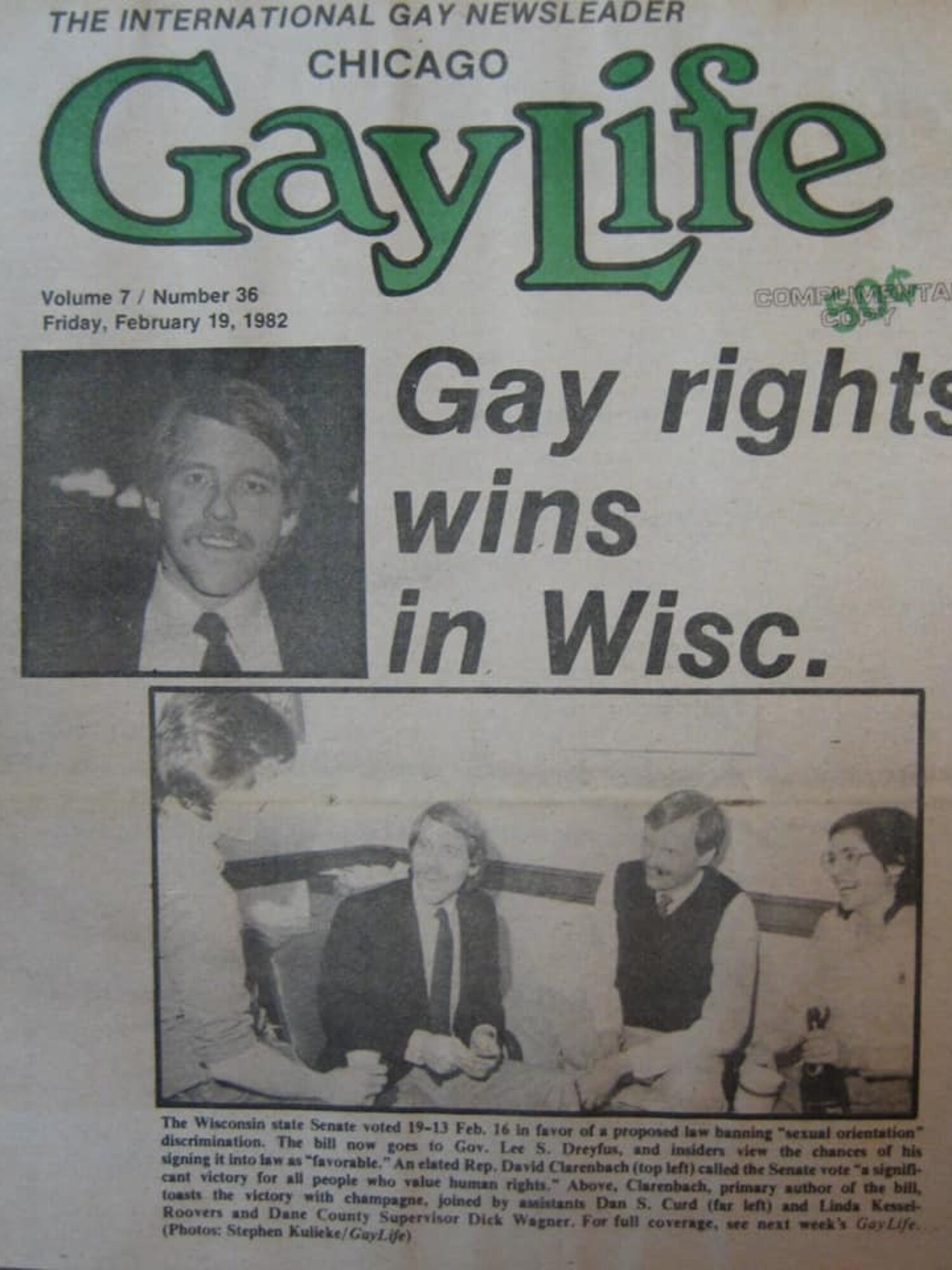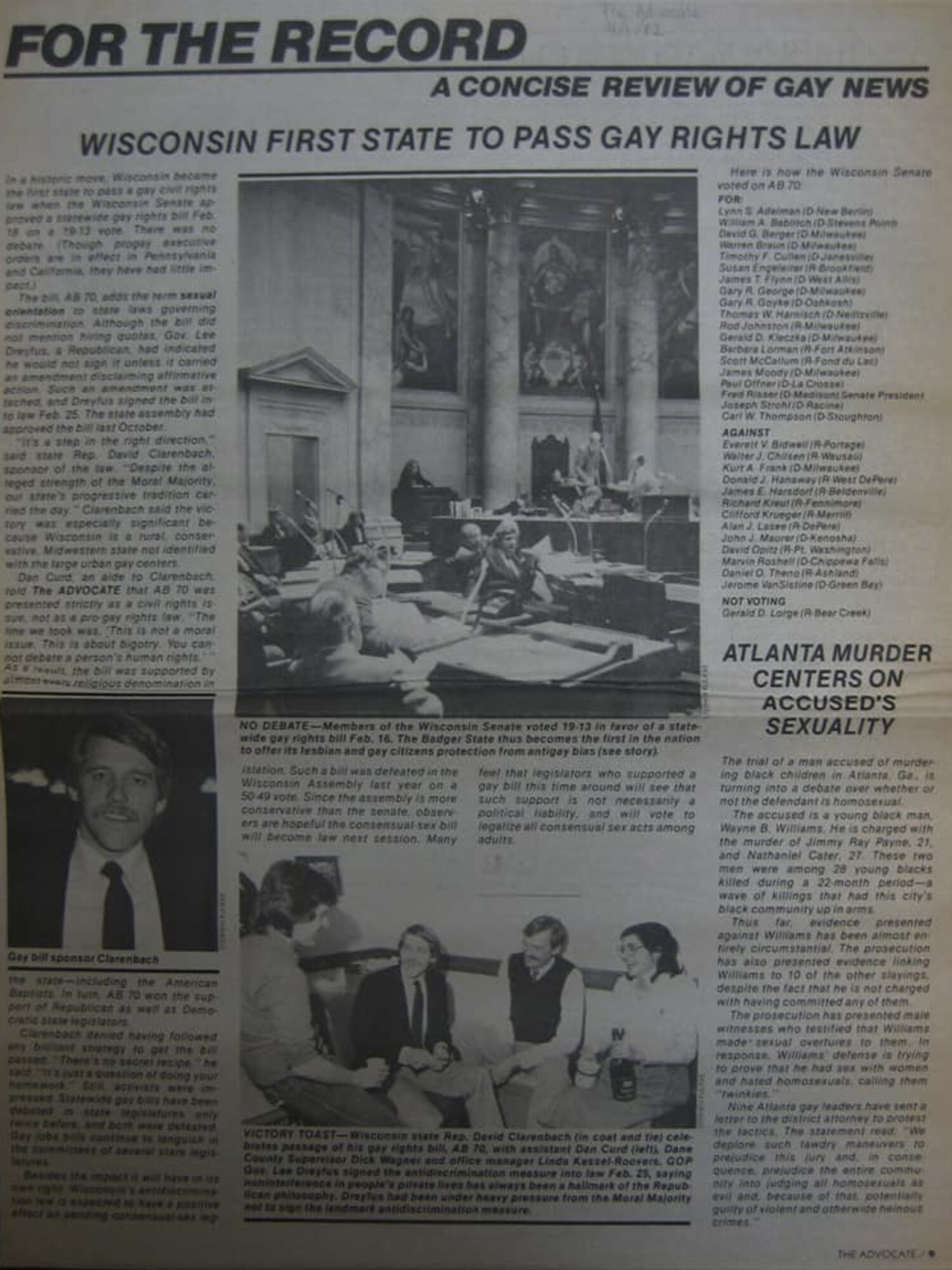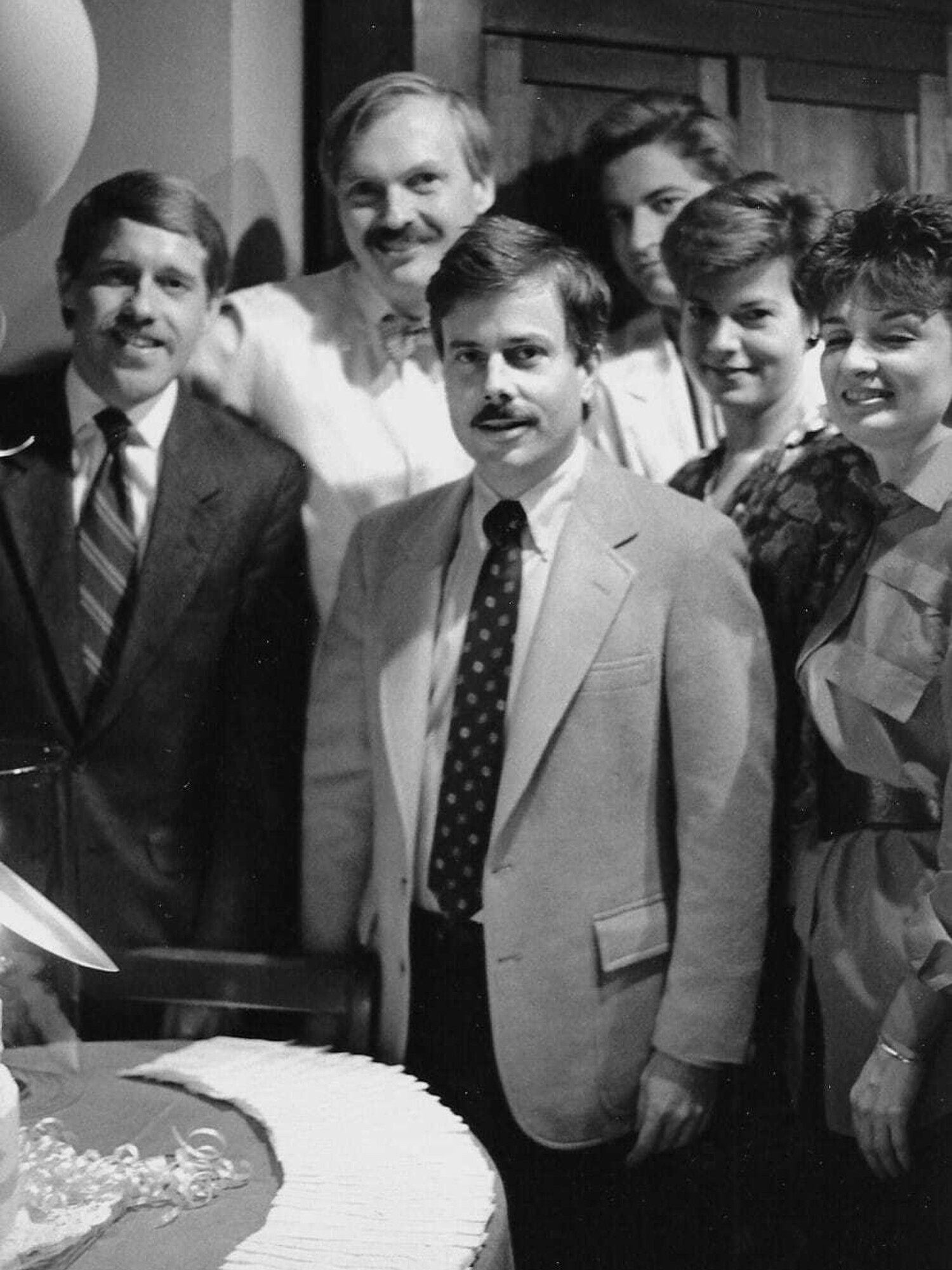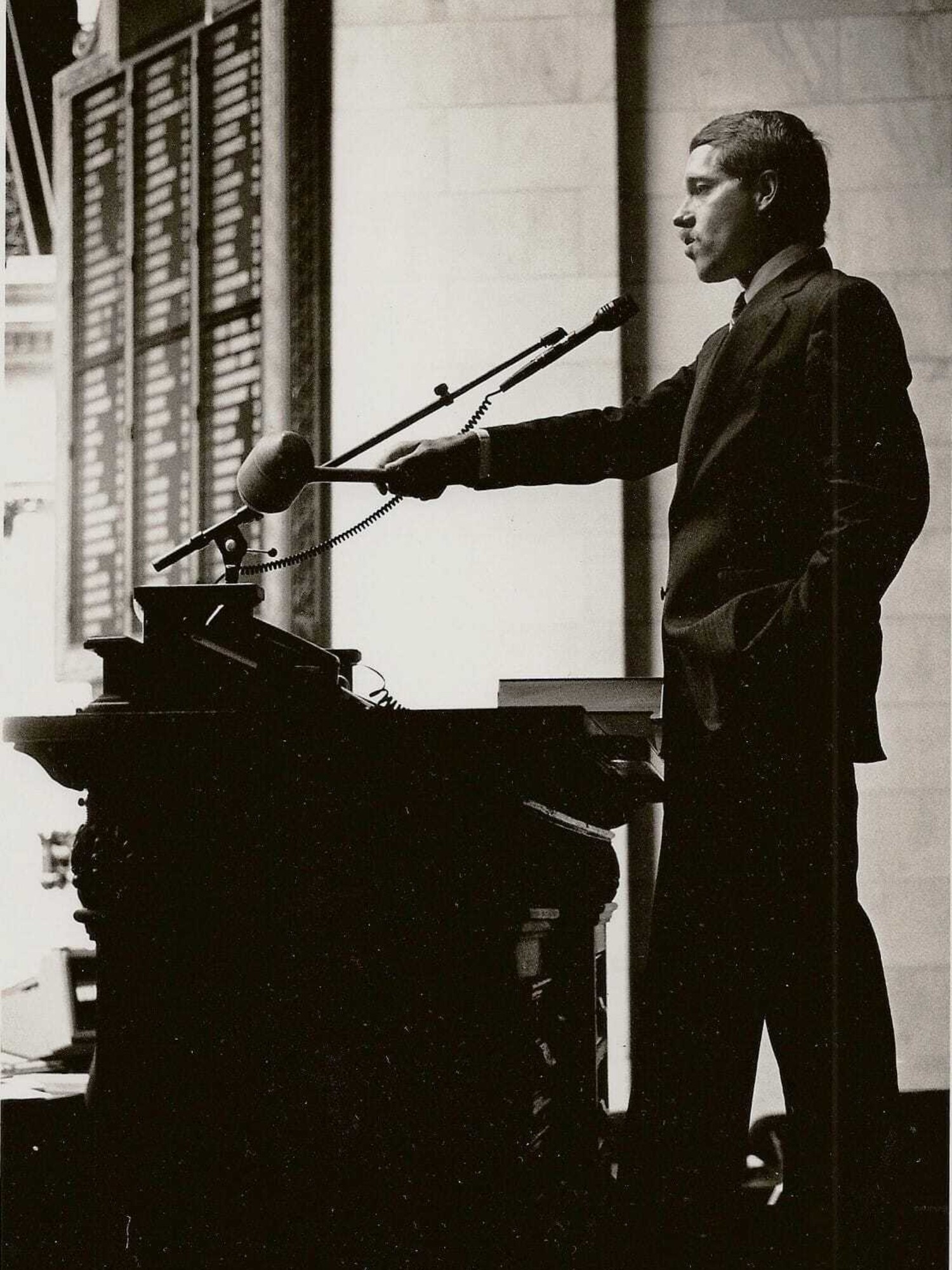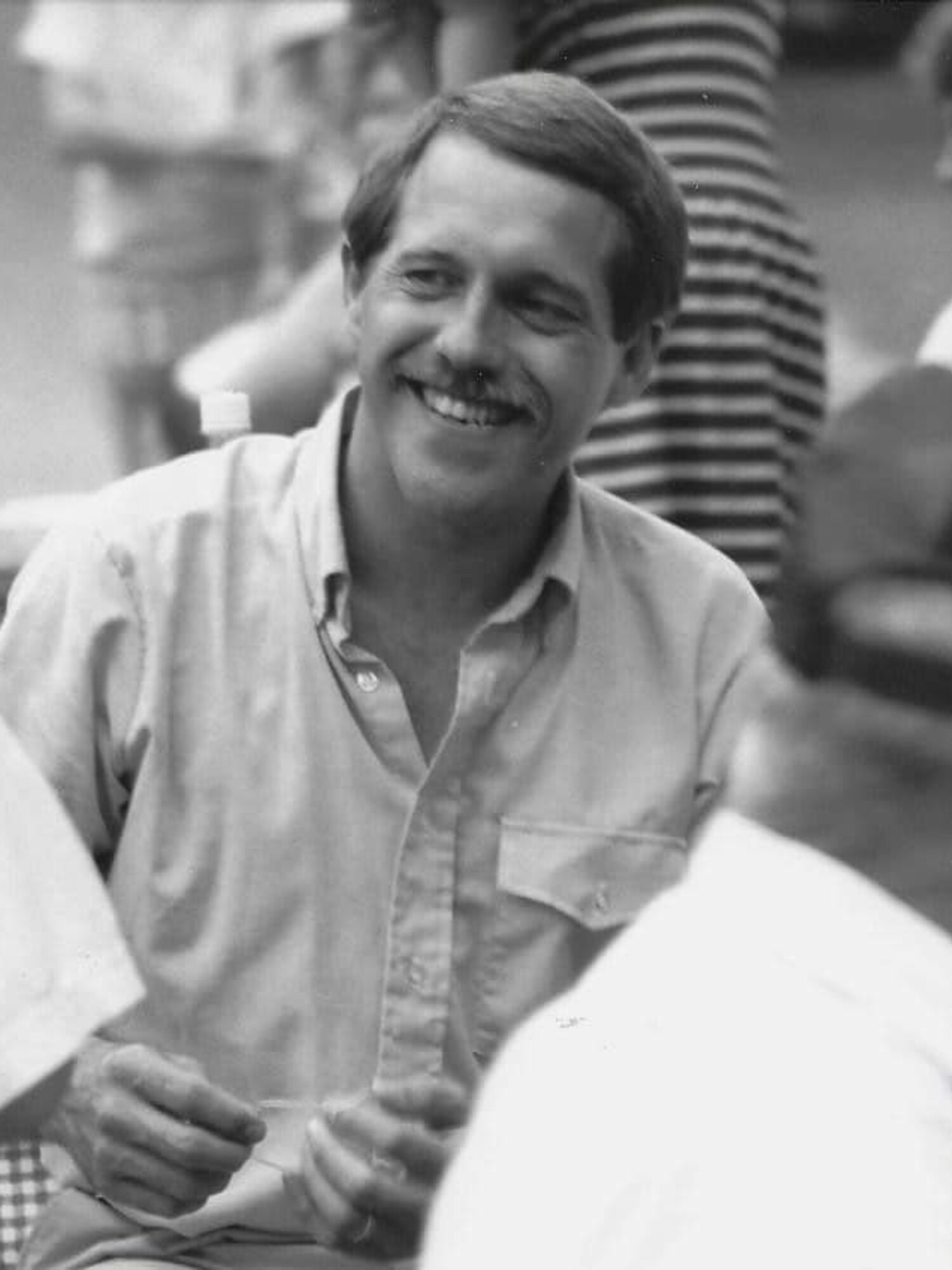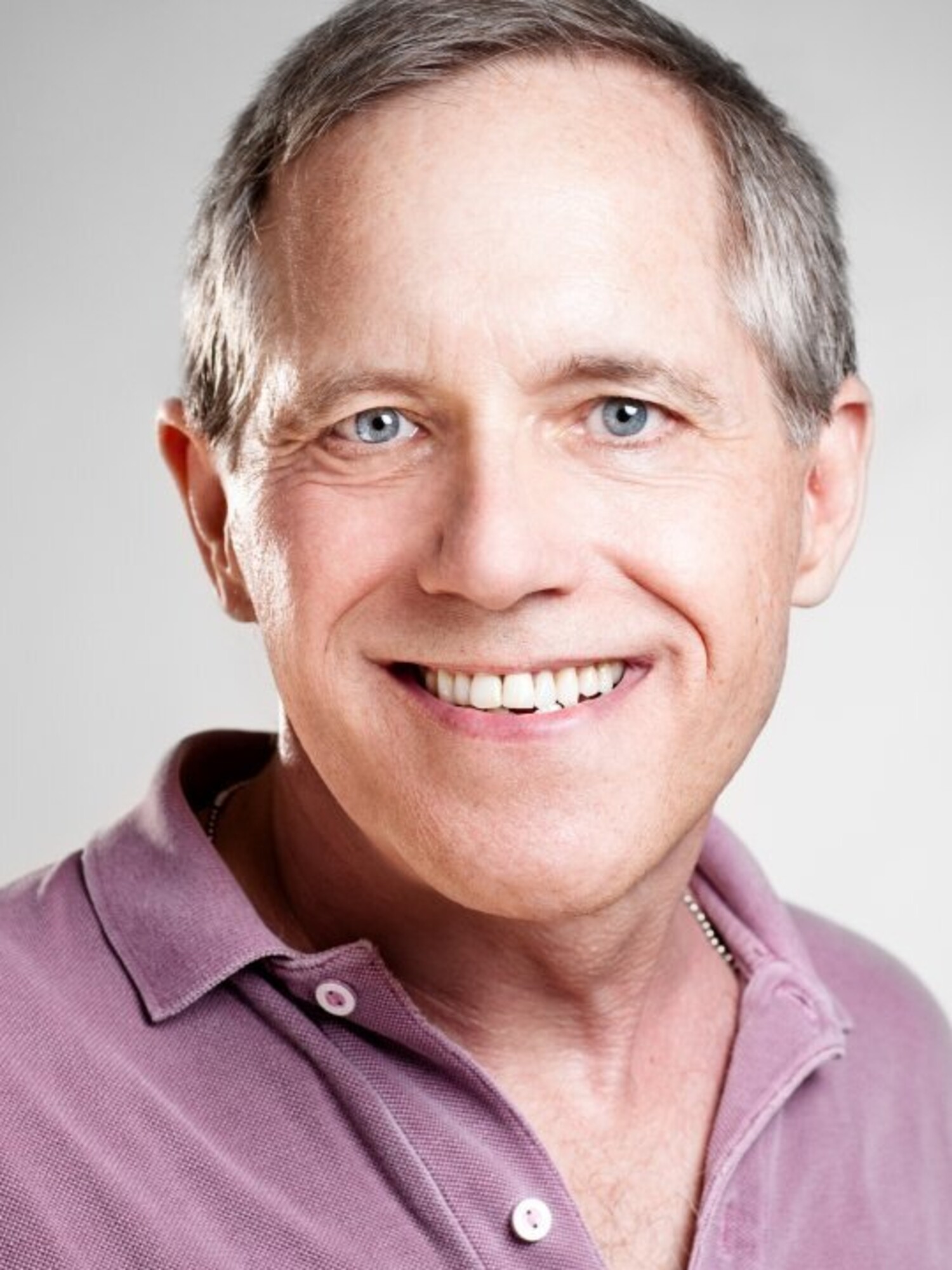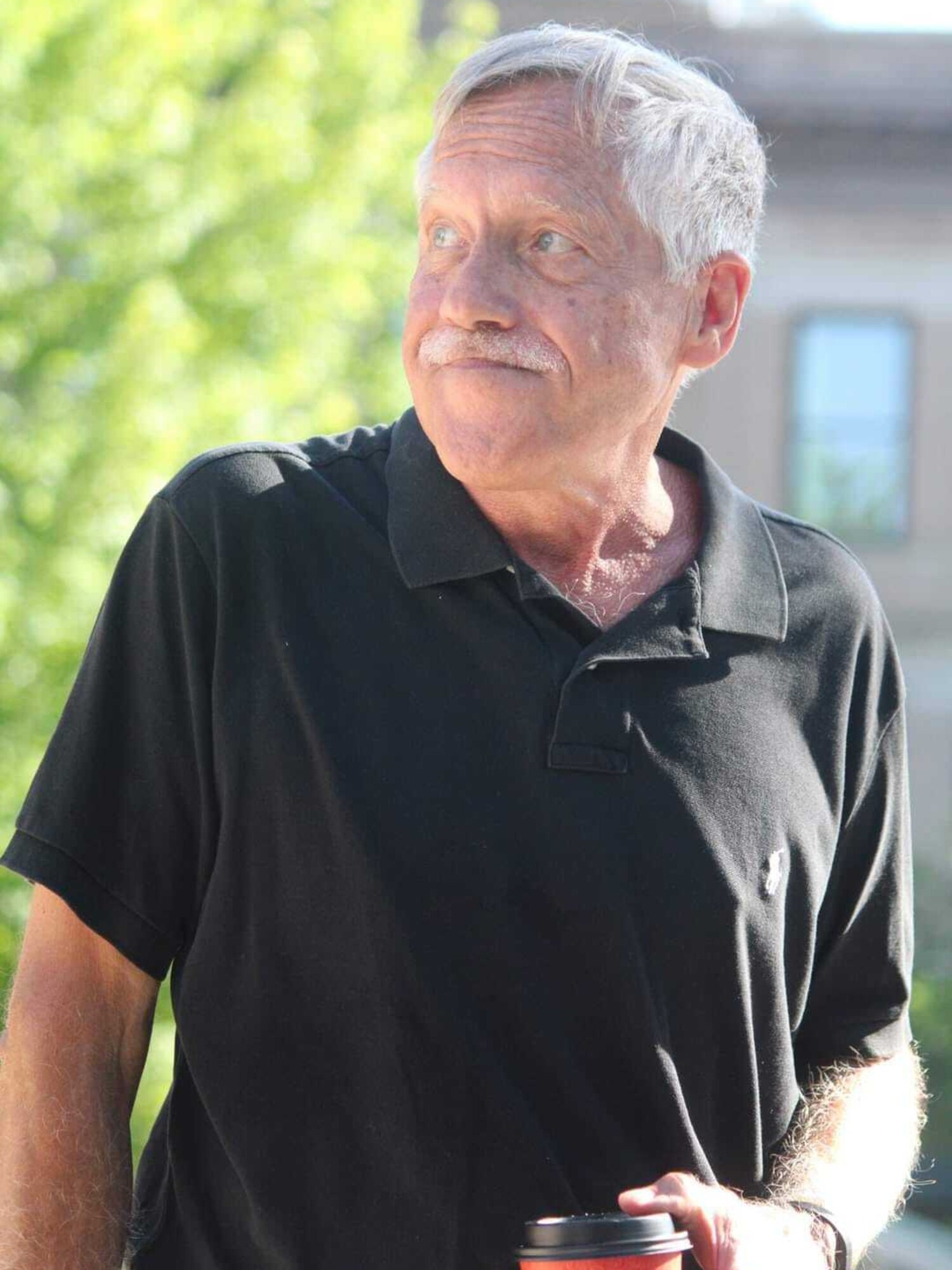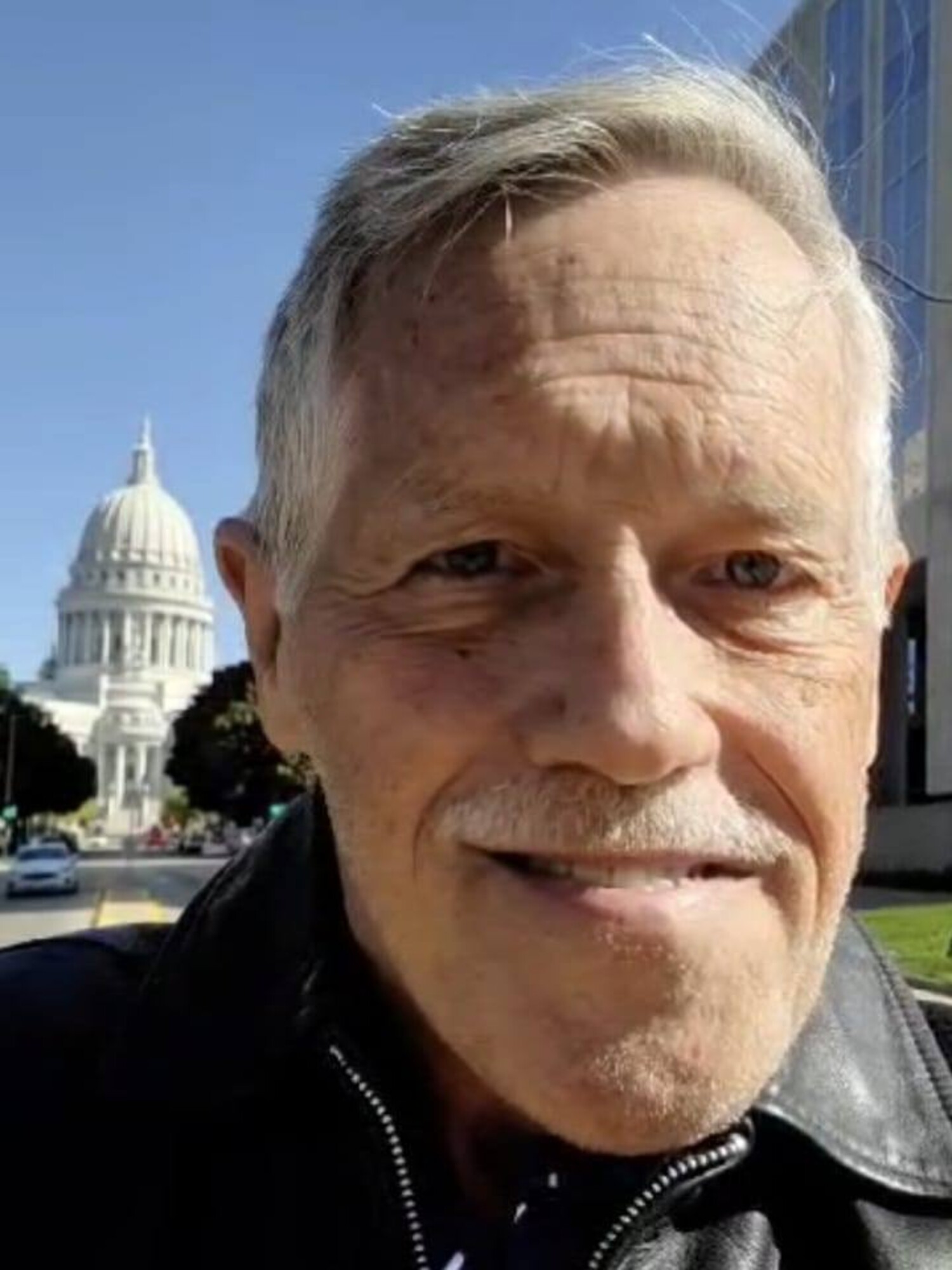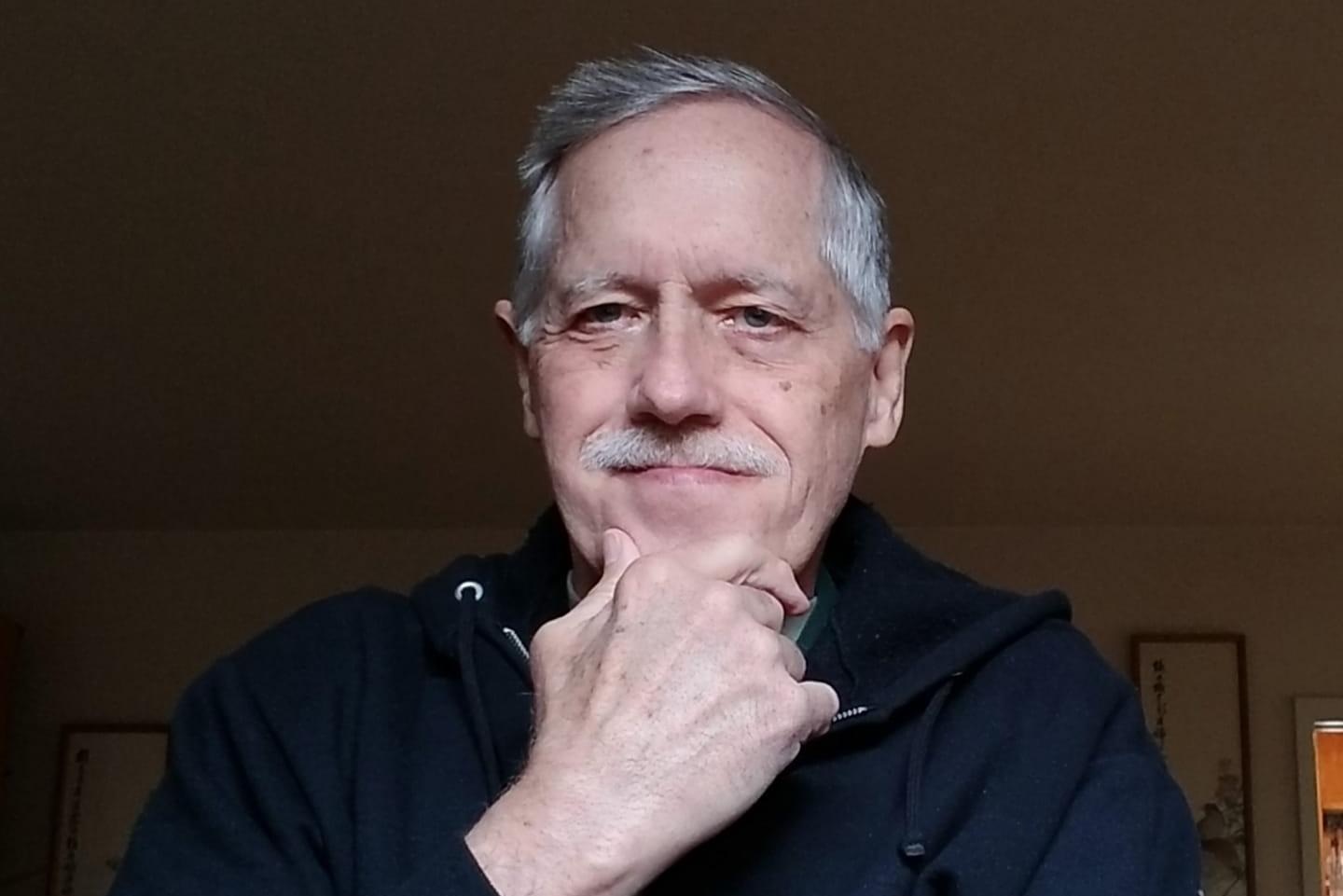
David Clarenbach: grinding the gears of the Gay Rights State

“It is a matter of life and death, not just civil rights... it's a matter of living and breathing,”
While David Clarenbach is largely known for his role in making Wisconsin the first gay rights state in the country, activism has always been a key part of his life. After many years in the realm of politics, both as a lawmaker and as a consultant, Clarenbach says he is now “more or less retired.” But he still keeps a close eye on the current state of affairs.
“I continue to be politically active or at least aware,” said Clarenbach. “And scared.”
In July of 1971, the 26th Amendment to the US Constitution was ratified, lowering the voting age to 18. In September, he turned 18.
In April of 1972, the first election 18-year-olds could vote in, Clarenbach was elected to the Dane County Board of Supervisors. At that time, there were no openly gay or lesbian elected officials. Clarenbach says while he never ran as an openly gay candidate, it wasn’t something he hid about himself.
“I wasn't even sure of my own sexuality at age 17. So once you're in office, to just make an announcement that you're gay or bisexual or lesbian, whatever you are, seemed kind of silly at a certain time because I didn't make any secret of who I was,” said Clarenbach. “I know that virtually every member of the state legislature and every member of the press corps knew that I was gay, and I was never asked about it.”
Clarenbach says he faced a “great deal” of suspicion because of his values and because he represented a largely student district. He says progressives were starting to gain influence, but it was a slow process.
“It was a very clear conservative majority on the county board because at that time, people weren't paying much attention to county government,” he said.
Being a member of the board took up much of Clarenbach’s time, meaning he attended UW- Madison for only one semester as a full-time student. He says his parents were worried about how his political activities at a young age would impact his education.
“Well, yes, it probably did, but that's too bad. That's where my heart was,” said Clarenbach.
While he still took some classes here and there and he has love for the university, Clarenbach did not get a degree. But parents will be parents.
“After I left politics 30 some years ago, my parents were still, ‘Now you could go back to school and get your degree.’ It's, like, beyond that,” he said while laughing.
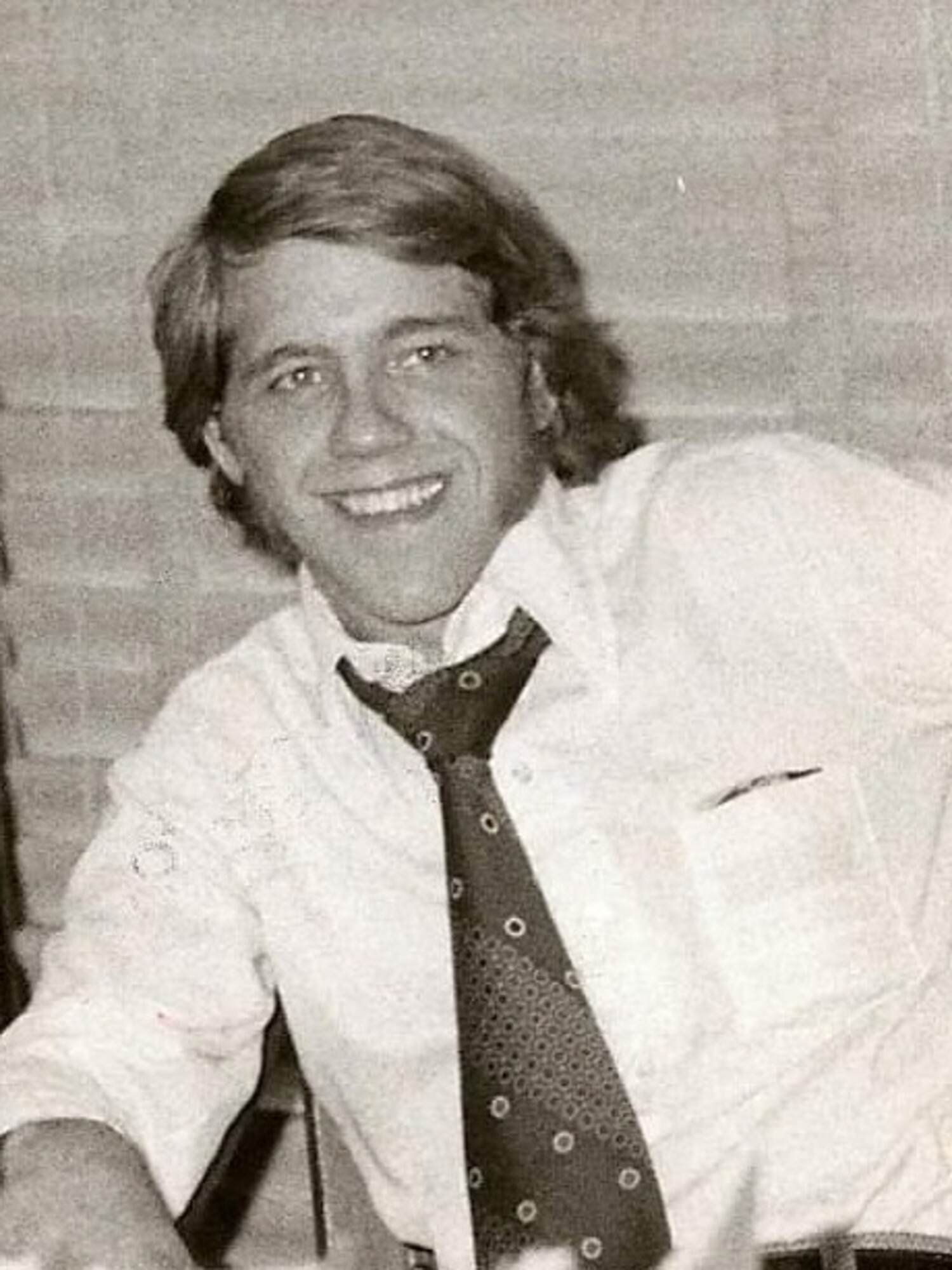 David Clarenbach
David Clarenbach
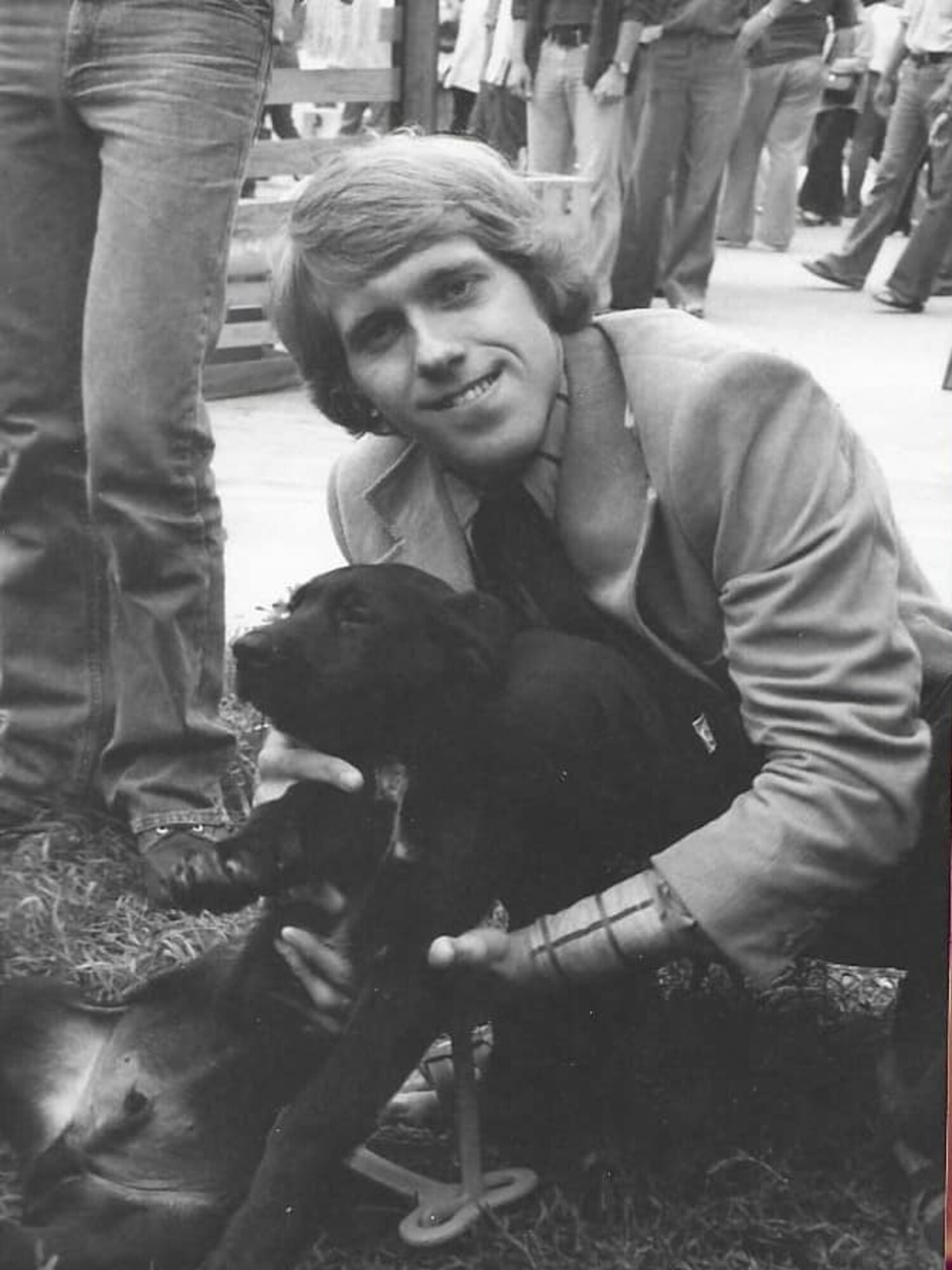 David Clarenbach
David Clarenbach
The start of his political career was marked with major protests on UW-Madison’s campus and the surrounding community, as people pushed against the war on poverty, against the US’s involvement in the Vietnam War, a fight for civil rights and worker’s rights among other issues. Clarenbach says taking part in physical demonstrations, as well as legislative action, was necessary as student voices were minimized by the general public.
“There were, citywide referendum on the war in Vietnam that served as organizing focus for anti-war movement broadly across the city, not just downtown. Although the demonstrations and the police violence that occurred even here in Madison were downtown and student focused, but there was a lot of organizing in the community and the religious and faith community were very involved,” said Clarenbach.
Clarenbach says he sees parallels with this time to the recent protests on college campuses. After multiple days, a Pro-Palestine encampment on UW’s Library Mall was met with police violence in May 2024. Students were calling for an end to the University’s investment into Israeli businesses during Israel’s genocidal campaign in Gaza.
He says it’s encouraging to see how activism has progressed through the years, and highlights the importance of electoral and grassroot politics working together.
“I think we're further ahead today because the progressive movement in general, which includes not just peace movement and social justice movement and economic democracy, movement for economic democracy, but also the LGBTQ movement has matured and has gained a level of acceptance that, frankly, I never thought I would see in my lifetime,” said Clarenbach.
“We rolled up our sleeves and did the hard work it takes to make change happen. And we didn't do it in smoke filled back rooms of wheeling and dealing. I mean, I did have to, you know, trade votes once in a while to get, you know, an amendment passed or an amendment killed, but it wasn't an inside job. It wasn't smoke-filled back rooms,” said Clarenbach.
“We did this in the light of day. People knew what we were doing and the opponents just didn't either have the political muscle or the strategy to defeat us.”
On February 25th, 1982 Republican Governor Lee Dreyfus signed that bill into law. Wisconsin made history as the first state to ban discrimination against LGBTQ+ people. The Consenting Adults bill passed the next year in Wisconsin. Other states that followed suit used Wisconsin’s model, though this would not happen for nearly a decade.
“Here we are, this many years later, with a law that has not been seriously challenged in the 40, in excess of 40 years, since the bill became law and that's something I think that's a tribute, not just to the legislators or the body politic, but to the general public that has accepted as a tenant of our society that it shouldn't make any difference who you love or how you love,” said Clarenbach.
Seven years after Wisconsin passed the landmark legislation, the new Gay and Lesbian Visibility Alliance, or GALVanize, held in Madison what’s known as one of the city's first Pride parades. Clarenbach says the parade on a cold day in May was an important moment in Madison history, and one that was well received by the community.
“At the time, we really felt like that had accomplished something significant in and of itself, just having an opportunity to be that visible and with that kind of turnout, it made an important statement,” said Clarenbach.
The year after the gay rights bill was signed into law, members of the legislature elected Clarenbach as Speaker pro tempore, a role he held for ten years. He says one of the key parts to his success in the role was finding the middle ground with fellow lawmakers.
“Your conduct in the public arena says a lot about who you are. And the level of civility and decorum and respect for those who oppose you are an important component to making ours a more accepting and tolerant society. And if we're not willing to do that, then you can't really expect the other side to be tolerant and accepting your life for you,” said Clarenbach.
“It is a matter of life and death, not just oral and civil rights, but it's a matter of living and breathing,” said Clarenbach.
A survey from KFF found 65% of LGBTQ adults reported discrimination when calling 988.
All these attacks come despite data showing this position being unpopular. Polling from Data For Progress just weeks before Election Day 2024 found that 74% of people said trans people deserve respect, and more than half of likely voters say anti-trans ads were “mean spirited” and “out of hand.”
“I would hope that the Republican party as an institution would pay a price politically for taking the stances that they do on a whole range of issues and recognize that it's in their self interest to be more accepting,” said Clarenbach. “There are undoubtedly some truly evil people that are spearheading the right way movement, whether it's on reproductive rights, or trans rights, or gay and lesbian civil rights…but I don't think that a majority of Americans are. I don't think anywhere even a significant minority of Americans are.”
Even though unpopular, this can lead to real world consequences, with the FBI reporting a record high in anti-LGBTQ+ hate crimes. The actual number of hate crimes could be higher though, as members of the LGBTQ community have reported harassment from police and often fear they will not be believed. With two months still left in the year, according to the Human Rights campaign, at least 27 trans and gender nonconforming people have been killed in 2024; 74% of those killed were people of color. In 2022, 41 transgender and gender-expansive people were killed, preceded by 51 deaths in 2021.
“It is the same kind of bigotry and hatred that is being used as an easy political wedge issue. and we need to make it not so easy for people, creeps, like Eric Hovde to gain political foothold over the dead bodies of trans individuals who aren't just being discriminated against and belittled…but belittled and killed,” said Clarenbach.
Clarenbach says the GOP’s treatment of transgender people is similar to homophobia from his time in public office.
“The right wing has very successfully built this horror show of 'oh, what happens to transgender individuals in high school sports or locker rooms,’” he said with sarcasm.
“‘I will protect your daughters’ is the same thing that 40 or 50 years ago, people were saying, ‘gays and lesbians? You want a fag to be your son's gym teacher? You know, hanging out in the locker room, hanging out in the showers, uh-oh, what are we gonna do?’”
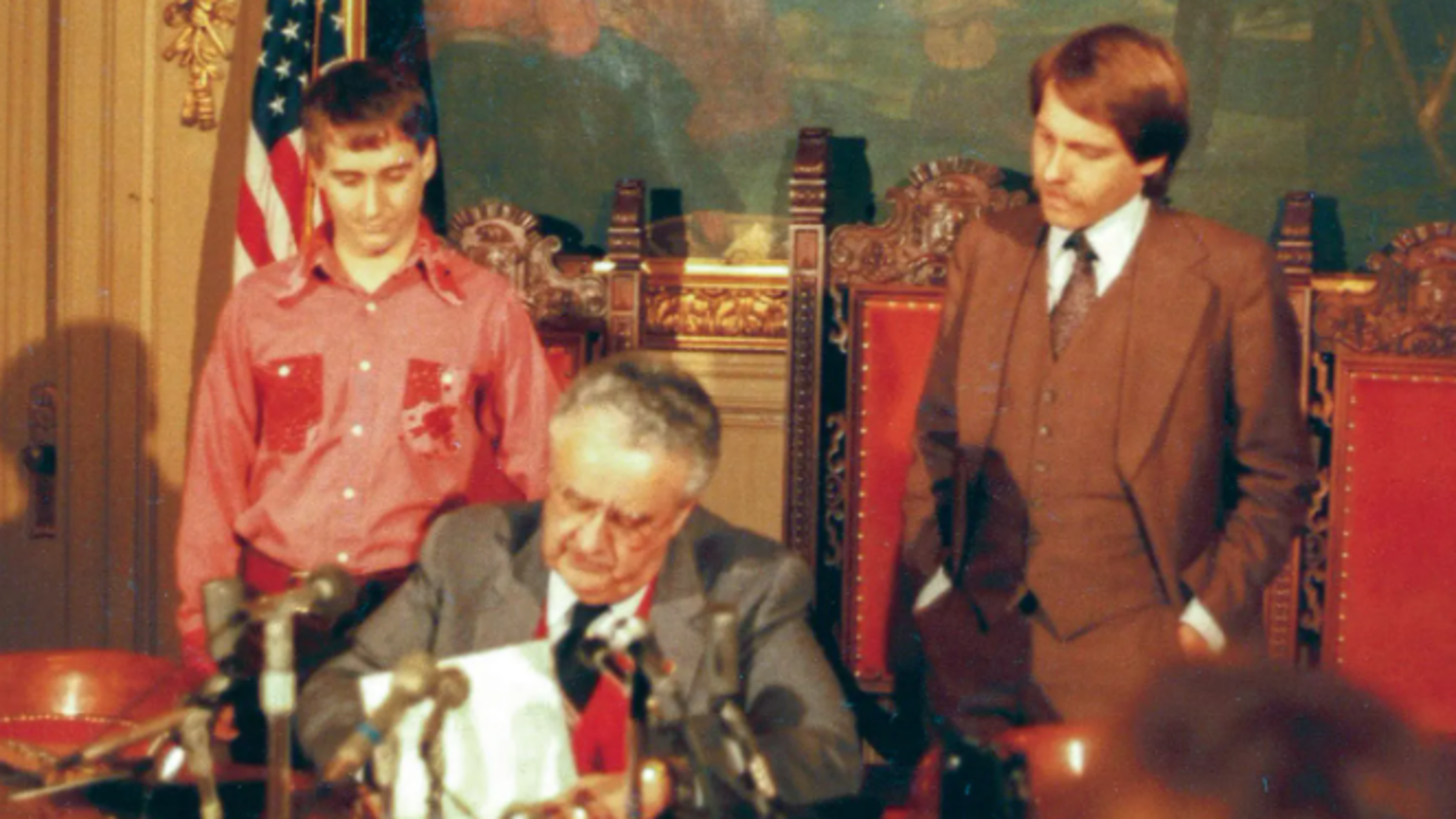 Governor Lee Dreyfus signs the Gay Rights Bill into law in 1982, making discrimination against gay and lesbian citizens illegal.
Governor Lee Dreyfus signs the Gay Rights Bill into law in 1982, making discrimination against gay and lesbian citizens illegal.
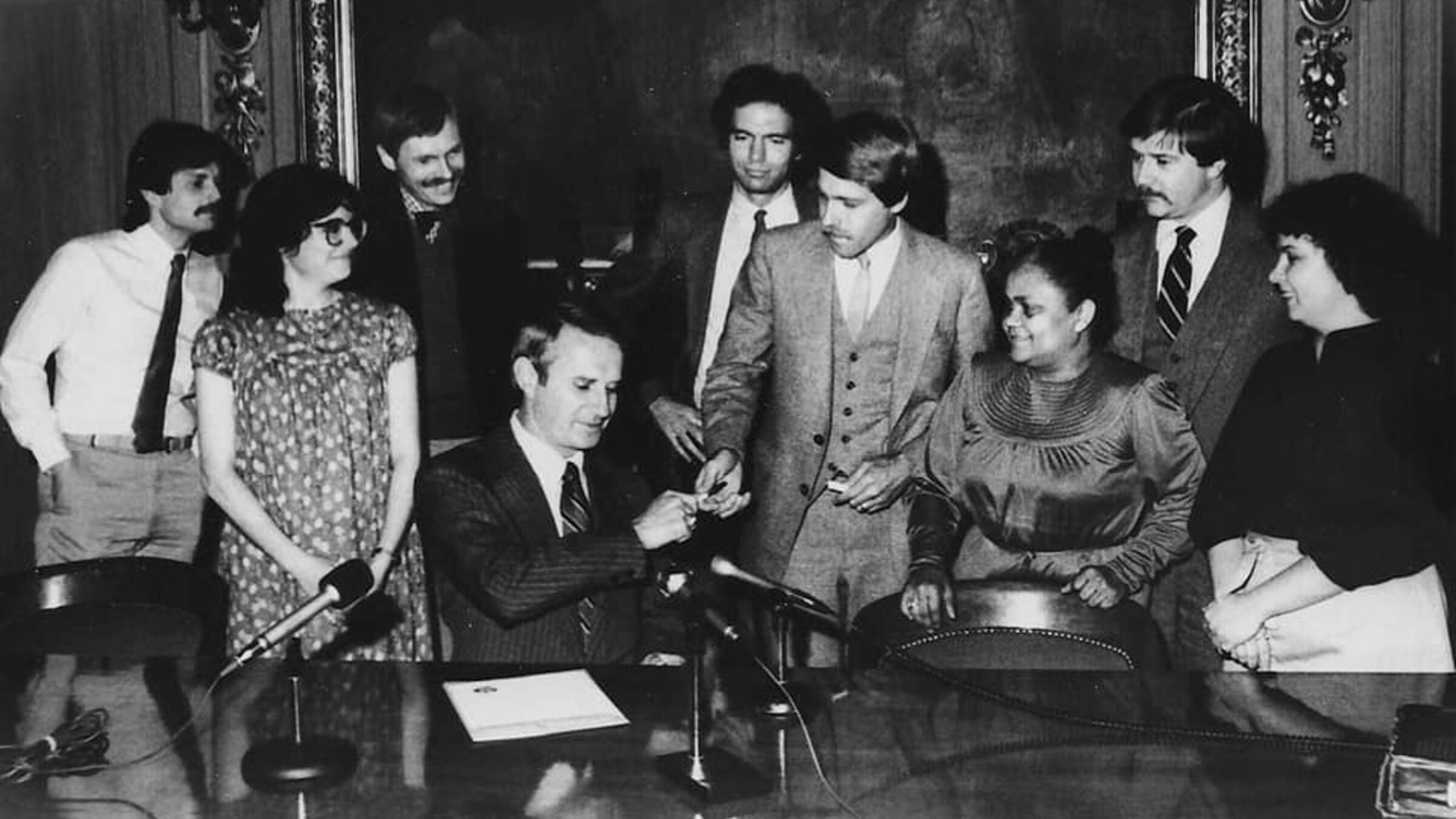 Governor Tony Earl signs The Consenting Adults Bill into law in 1983, effectively decriminalizing homosexuality in Wisconsin.
Governor Tony Earl signs The Consenting Adults Bill into law in 1983, effectively decriminalizing homosexuality in Wisconsin.
recent blog posts
June 30, 2025 | Ricardo D. Wynn
May 31, 2025 | Andy Hartman
May 27, 2025 | Andy Hartman
The concept for this web site was envisioned by Don Schwamb in 2003, and over the next 15 years, he was the sole researcher, programmer and primary contributor, bearing all costs for hosting the web site personally.
